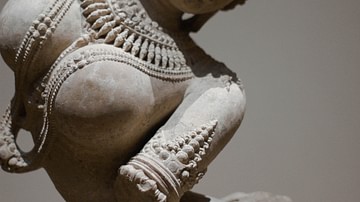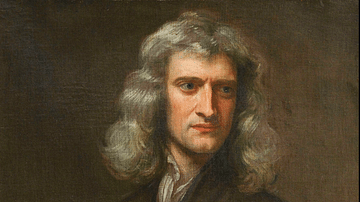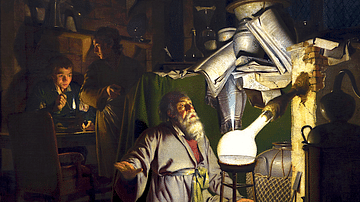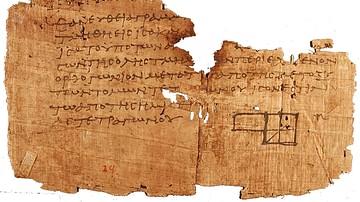Search
Search Results

Definition
Aristotle
Aristotle of Stagira (l. 384-322 BCE) was a Greek philosopher who pioneered systematic, scientific examination in literally every area of human knowledge and was known, in his time, as "the man who knew everything" and later simply as "The...

Definition
Roman Science
The Romans assimilated earlier Greek science for their own purposes, evaluating and then accepting or rejecting that which was most useful, much as they did in other fields such as warfare, art, and theatre. This assimilation of Greek thought...

Book Review
Anaximander
Carlo Rovelli is first and foremost a scientist, an Italian theoretical physicist, who came to worldwide attention with his book, Seven Brief Lessons on Physics (2015 CE). Anaximander (first published in English in 2011 CE) is an earlier...

Definition
Galileo Galilei
Galileo Galilei (1564-1642) was an Italian mathematician, physicist, astronomer, and natural philosopher. He created a superior telescope with which he made new observations of the night sky, notably that the surface of the Moon has mountains...

Definition
Apsaras and Gandharvas
In the Vedas, the apsaras are water nymphs, often married to the gandharvas. By the time the Puranas and the two epics were composed, the apsaras and gandharvas had become performing artists to the gods; the apsaras are singers, dancers...

Definition
David Hume
David Hume (1711-1776) was a Scottish philosopher, writer, historian, and important figure in the Enlightenment. Hume presented a positive view of human nature but a sceptical view of religion's usefulness. His Treatise of Human Nature was...

Definition
Hafez Shiraz
Hafez of Shiraz (also given as Hafiz, l. 1315-1390) is considered the greatest of the Persian poets and among the most famous and admired writers in world literature. He is among the most often translated poets in the present day and his...

Definition
Isaac Newton
Isaac Newton (1642-1727) was an English mathematician and physicist widely regarded as the single most important figure in the Scientific Revolution for his three laws of motion and universal law of gravity. Newton's laws became a fundamental...

Definition
Alchemy
Alchemy is an ancient practice aimed at recreating precious substances using recipes and transformative materials such as the philosopher's stone. Alchemists believed that materials like gold, silver, gems, and purple dye could be recreated...

Definition
Ancient Greek Science
Ancient Greek science is a modern term for the application of systematic inquiry into the individual, the world, and the universe, which began in Ionia in the 6th century BCE with Thales of Miletus (l. c. 585 BCE) and continued through the...